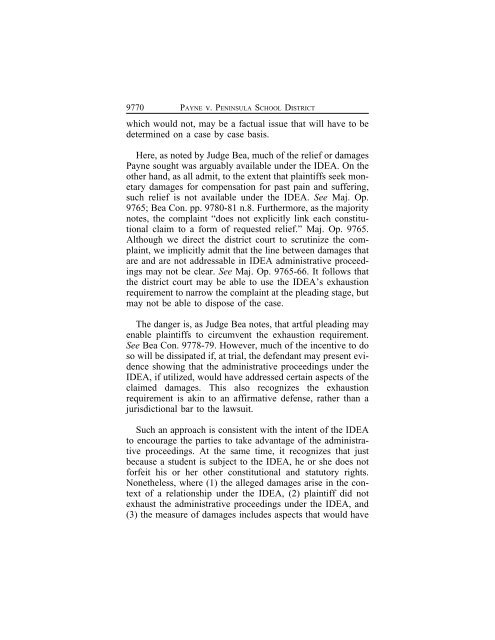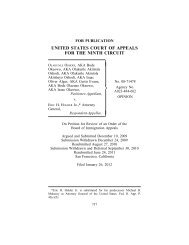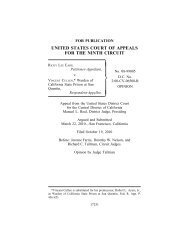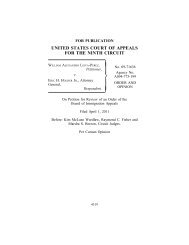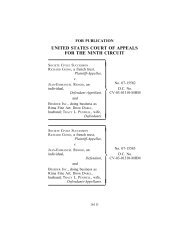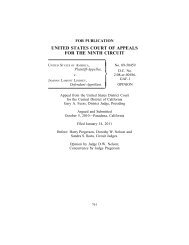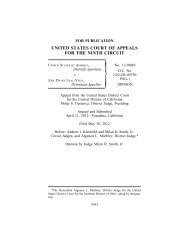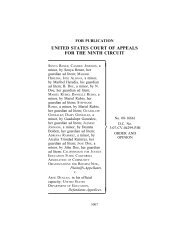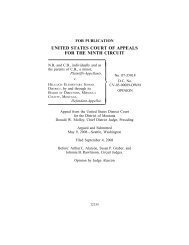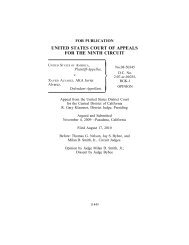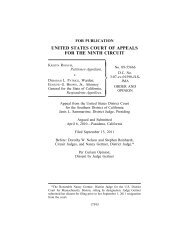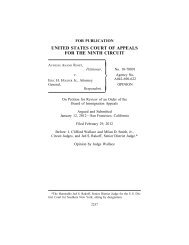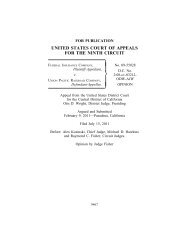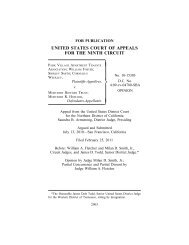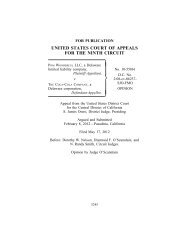UNITED STATES COURT OF APPEALS FOR THE NINTH CIRCUIT
UNITED STATES COURT OF APPEALS FOR THE NINTH CIRCUIT
UNITED STATES COURT OF APPEALS FOR THE NINTH CIRCUIT
Create successful ePaper yourself
Turn your PDF publications into a flip-book with our unique Google optimized e-Paper software.
9770 PAYNE v. PENINSULA SCHOOL DISTRICT<br />
which would not, may be a factual issue that will have to be<br />
determined on a case by case basis.<br />
Here, as noted by Judge Bea, much of the relief or damages<br />
Payne sought was arguably available under the IDEA. On the<br />
other hand, as all admit, to the extent that plaintiffs seek monetary<br />
damages for compensation for past pain and suffering,<br />
such relief is not available under the IDEA. See Maj. Op.<br />
9765; Bea Con. pp. 9780-81 n.8. Furthermore, as the majority<br />
notes, the complaint “does not explicitly link each constitutional<br />
claim to a form of requested relief.” Maj. Op. 9765.<br />
Although we direct the district court to scrutinize the complaint,<br />
we implicitly admit that the line between damages that<br />
are and are not addressable in IDEA administrative proceedings<br />
may not be clear. See Maj. Op. 9765-66. It follows that<br />
the district court may be able to use the IDEA’s exhaustion<br />
requirement to narrow the complaint at the pleading stage, but<br />
may not be able to dispose of the case.<br />
The danger is, as Judge Bea notes, that artful pleading may<br />
enable plaintiffs to circumvent the exhaustion requirement.<br />
See Bea Con. 9778-79. However, much of the incentive to do<br />
so will be dissipated if, at trial, the defendant may present evidence<br />
showing that the administrative proceedings under the<br />
IDEA, if utilized, would have addressed certain aspects of the<br />
claimed damages. This also recognizes the exhaustion<br />
requirement is akin to an affirmative defense, rather than a<br />
jurisdictional bar to the lawsuit.<br />
Such an approach is consistent with the intent of the IDEA<br />
to encourage the parties to take advantage of the administrative<br />
proceedings. At the same time, it recognizes that just<br />
because a student is subject to the IDEA, he or she does not<br />
forfeit his or her other constitutional and statutory rights.<br />
Nonetheless, where (1) the alleged damages arise in the context<br />
of a relationship under the IDEA, (2) plaintiff did not<br />
exhaust the administrative proceedings under the IDEA, and<br />
(3) the measure of damages includes aspects that would have


